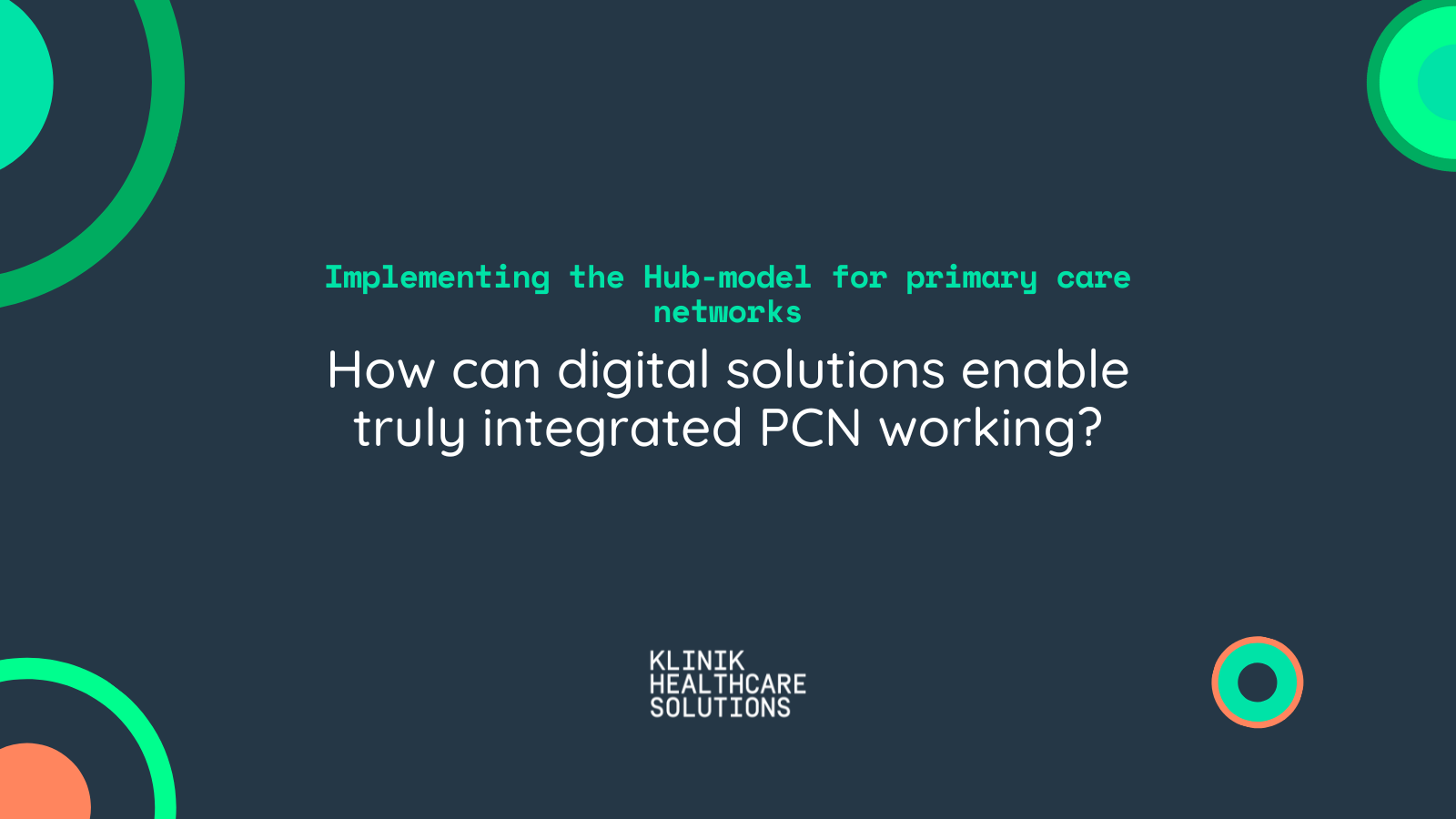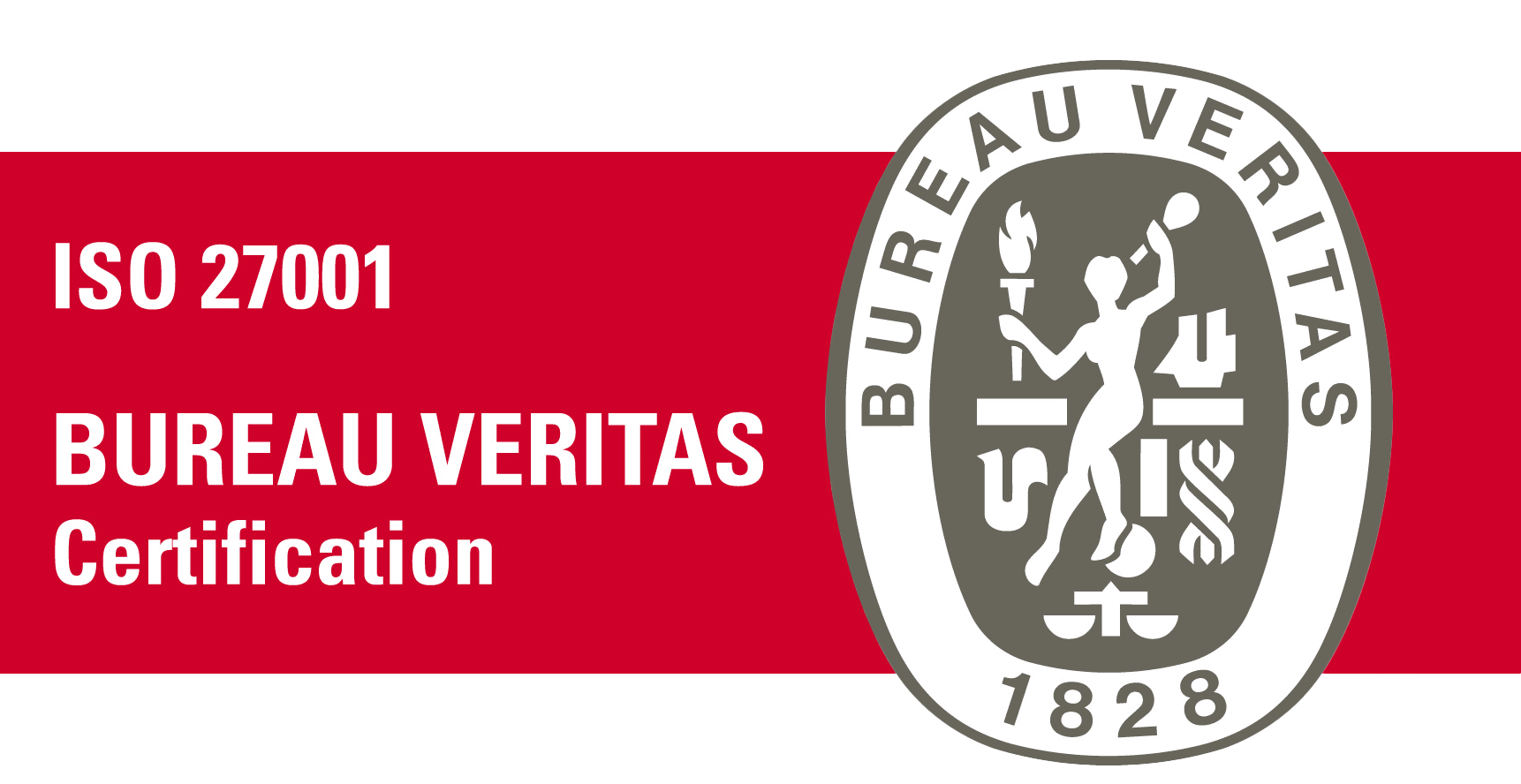Primary care is in the midst of its most significant period of transformation in decades.
Faced with limited funding and skyrocketing patient demand, the sector has been exploring new opportunities to introduce efficiencies and improve the delivery model for primary care for over a decade.
Charged with delivering more collaborative, integrated healthcare services, primary care networks (PCNs) aim to bring together GP practices with services in the community and secondary care – enhancing collaboration between multidisciplinary teams, and offering patients more straightforward access to a wider range of services.
Since the 2022 Fuller Stocktake report, many PCNs have sought to become even further integrated into their communities, provide access to healthcare services that meet local needs and improve continuity of care for patients. But PCN managers face a number of barriers on the path to further integration – including difficulties developing new ways of working, gaps in their understanding of demand and capacity, and limited resources to work with.
So how can they overcome these barriers to deliver truly connected care?
Understanding and overcoming key challenges to integration that exist
PCNs still face many obstacles on their road to becoming fully integrated teams: a resistance to change means taking advantage of opportunities to integrate can be slowed, and a lack of digital infrastructure can leave PCN managers essentially working in the dark when it comes to taking decisions needed to improve access and care across the network.
Every practice is covered by a PCN, but the extent of collaborative working varies
SInce 2019, every practice in England sits within a PCN, and 99% of GP practices have signed up to one of these networks.
However, not every PCN has adopted the same degree of integrated working. While many have taken a truly cross-functional approach, a large number of PCNs continue to see only a loose alignment between the practices in the network.
The extent of engagement with other practices, individual procurement decisions, and even variations in the model of triage, may all differ depending on the specific practice. The lethargy of existing workflows and general resistance to adopting new operational methods can often pose significant challenges to change, limiting PCNs’ ability to integrate further.,
Without better information, planning in both the short- and long-term is challenging
The pressures on primary care teams driven by patient demand have continued to rise. The demand for reactive care often presents challenges for primary care teams, many of which aren’t collecting the essential information needed from patients at point of enquiry to appropriately triage their enquiries.
This often means that GPs must deal with a large volume of appointments which may be unnecessary or which could be more cost-effective if handled by a different team member. This presents a significant problem for clinical teams and takes away time that would otherwise be spent on proactive care.
In the long-term, this lack of data creates even larger challenges for PCNs, with staffing decisions often not made on the basis of actual data on demand.
For PCNs, which requires a strategic alignment of objectives and an efficient allocation of resources to cater to the healthcare demands of diverse populations, this lack of information may hinder their ability to do so effectively.
Without effective digital solutions, collaborative working may be limited
A final key obstacle is the lack of alignment around clinical pathways and ways of working between practices within a PCN that may mean opportunities for cross-PCN collaboration are limited – particularly where teams are using different systems or tools for managing patient triage and flow.
Implementing the hub model to integrate primary and community care
For both patients and staff to benefit from the improved access to local care services that PCNs were intended to deliver, it’s essential that services take advantage of opportunities for collaborative working offered by greater integration.
A hub model of triage offers the most straightforward approach to bring together services and streamline patient flow management and collaboration between multidisciplinary teams. Designed to foster integrated primary and community care within PCNs, the hub model centralises triage decisions for patient enquiries across a network, offering clear, consistent care pathways for patients, regardless of at which practice they register their initial enquiry.
Crucially, this model also enables teams to manage follow-up care across the network, and take advantage of all available clinical capacity – including in other practices – to cope with surges in demand.
Digital plays a critical role in enabling effective hub-working for PCNs
In streamlining patient referrals and coordination of care between services, digital tools like Klinik reduces the friction between different providers and ensures rapid collection and sharing of information needed to overcome barriers.
By providing a single digital hub connecting clinicians across a network and which can be accessed by teams regardless of which practice or service they’re based in, Klinik helps PCNs to coordinate patient care and streamline access to a wide range of services across the geographical area.
With AI-assisted patient-history taking providing triage teams with the information needed to make rapid, accurate care decisions, Klinik makes triage and patient flow management more efficient. With all enquiries triaged in a single system, Klinik ensures equitable access to care for patients across the network.
Thanks to the insights contained within the dashboard, PCN managers also have greater oversight of demand and capacity across the network, both at the current time and over a period of months. As a result, they are better able to make decisions on the staffing and resources necessary to ensure patient access within current funding – while also being able to create space for proactive care, too.
The transition toward integrated neighbourhood teams reflects wider pushes toward more sustainable, integrated models of care taking place across healthcare in England.
The hub model of triage is central to enabling true PCN ways of working by helping networks overcome traditional barriers to integration. By embracing these technological innovations, PCNs can enhance service delivery, ensuring patients receive timely, coordinated care.
If you’d like to discuss how Klinik could help your PCN to benefit from a hub-model approach to triage, get in touch with our team to find out more.
Our partners in primary care
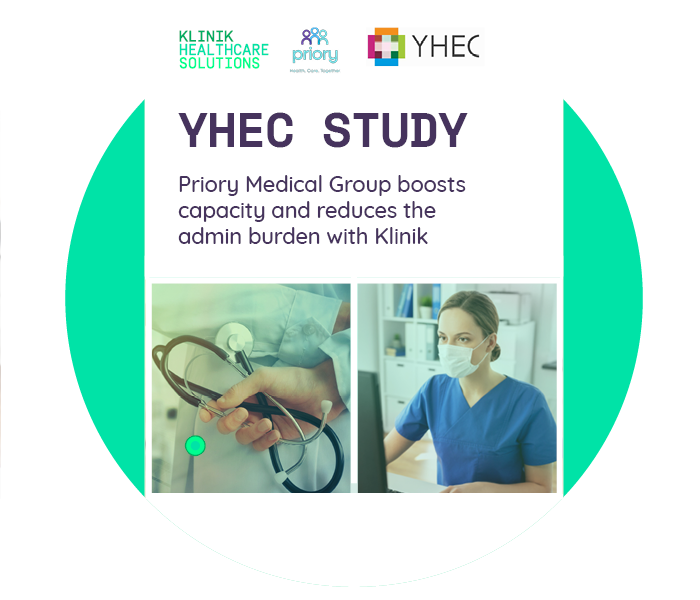
York Health Economics Consortium evaluated Klinik's patient triage technology at Priory Medical Group's PCN, backed by Yorkshire and Humber AHSN. They found Klinik enabled a year's delivery of 18 months' appointments and saved over £300k in capacity.

Faced with recruitment challenges and increasing workload, Carn to Coast Health Centres implemented Klinik online triage to help provide a more efficient service. Now the Cornish four-site practice can safely prioritise the needs of the 31,000 patients.
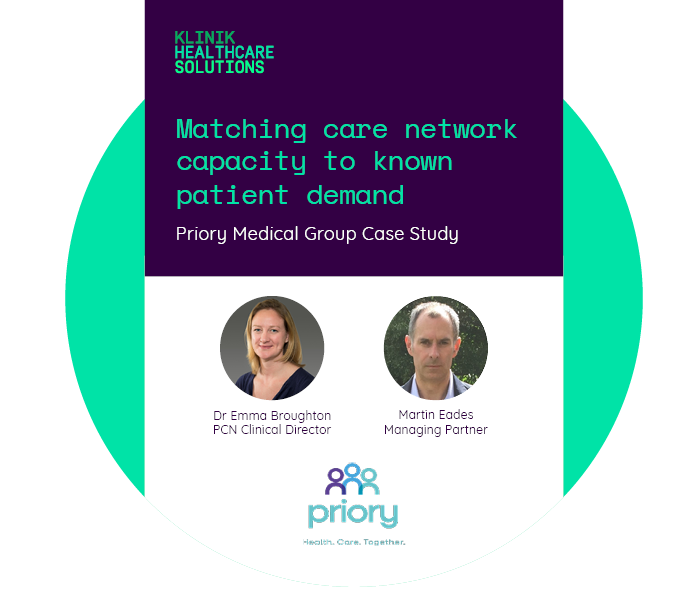
Priory Medical Group shares how working with Klinik has enabled the PCN to improve the patient journey, boost staff satisfaction and adapt its workforce to known local needs. The system has helped measure the actual demand faced across the PCN’s nine sites.
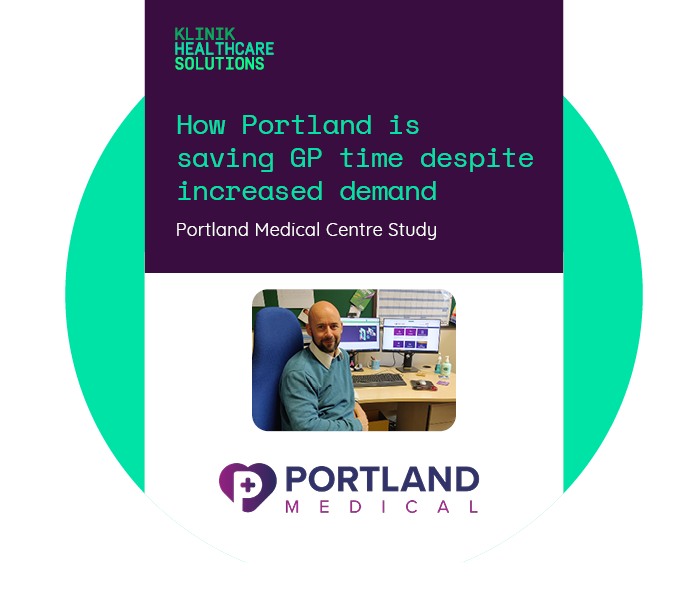
Klinik is saving London’s Portland Medical Centre 3 to 4 GP sessions per week despite a growing patient list and huge demand for care. The innovative online triage and patient flow management technology is ‘the best thing since sliced bread’, says Flemming Jensen, Business Manager of Portland Medical Centre.
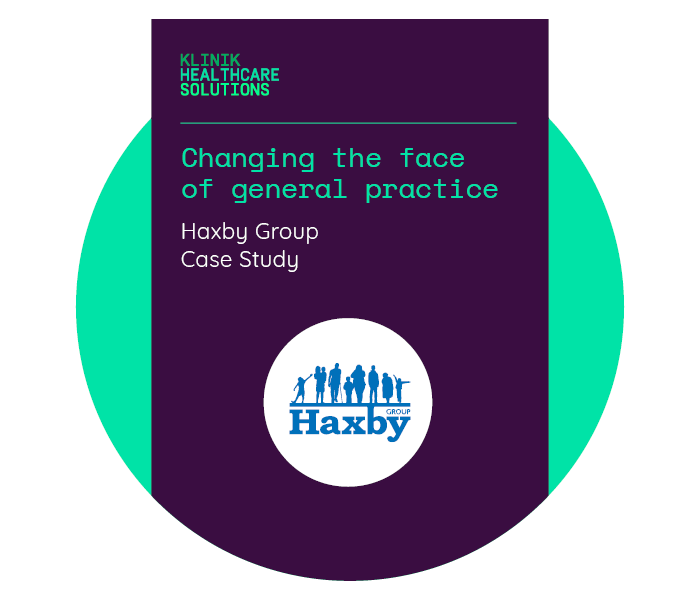
Haxby Group reveals how Klinik is helping to change how general practice is meeting the needs of patients and professionals.
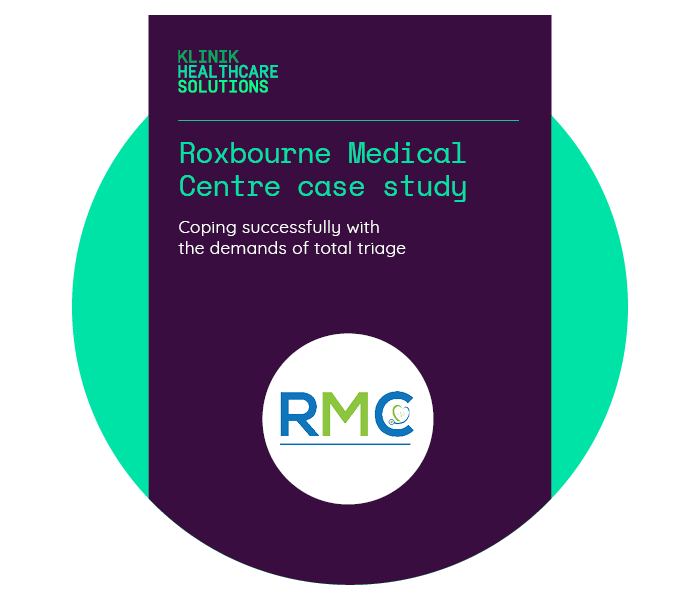
One practice that is excelling at managing this demand is Roxbourne Medical Centre. With smart processes, great teamwork and Klinik technology, the London practice has been able to manage the demands it faces without having to increase headcount. Now staff would never go back to the old ways of working.
